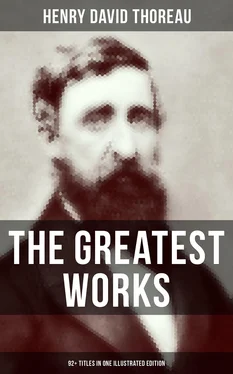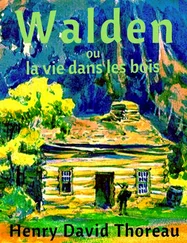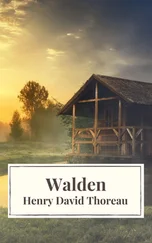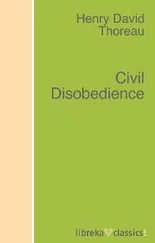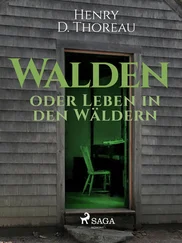We boast that we belong to the Nineteenth Century and are making the most rapid strides of any nation. But consider how little this village does for its own culture. I do not wish to flatter my townsmen, nor to be flattered by them, for that will not advance either of us. We need to be provoked — goaded like oxen, as we are, into a trot. We have a comparatively decent system of common schools, schools for infants only; but excepting the half-starved Lyceum in the winter, and latterly the puny beginning of a library suggested by the State, no school for ourselves. We spend more on almost any article of bodily aliment or ailment than on our mental aliment. It is time that we had uncommon schools, that we did not leave off our education when we begin to be men and women. It is time that villages were universities, and their elder inhabitants the fellows of universities, with leisure — if they are, indeed, so well off — to pursue liberal studies the rest of their lives. Shall the world be confined to one Paris or one Oxford forever? Cannot students be boarded here and get a liberal education under the skies of Concord? Can we not hire some Abelard to lecture to us? Alas! what with foddering the cattle and tending the store, we are kept from school too long, and our education is sadly neglected. In this country, the village should in some respects take the place of the nobleman of Europe. It should be the patron of the fine arts. It is rich enough. It wants only the magnanimity and refinement. It can spend money enough on such things as farmers and traders value, but it is thought Utopian to propose spending money for things which more intelligent men know to be of far more worth. This town has spent seventeen thousand dollars on a town-house, thank fortune or politics, but probably it will not spend so much on living wit, the true meat to put into that shell, in a hundred years. The one hundred and twenty-five dollars annually subscribed for a Lyceum in the winter is better spent than any other equal sum raised in the town. If we live in the Nineteenth Century, why should we not enjoy the advantages which the Nineteenth Century offers? Why should our life be in any respect provincial? If we will read newspapers, why not skip the gossip of Boston and take the best newspaper in the world at once? — not be sucking the pap of “neutral family” papers, or browsing “Olive Branches” here in New England. Let the reports of all the learned societies come to us, and we will see if they know anything. Why should we leave it to Harper & Brothers and Redding & Co. to select our reading? As the nobleman of cultivated taste surrounds himself with whatever conduces to his culture — genius — learning — wit — books — paintings — statuary — music — philosophical instruments, and the like; so let the village do — not stop short at a pedagogue, a parson, a sexton, a parish library, and three selectmen, because our Pilgrim forefathers got through a cold winter once on a bleak rock with these. To act collectively is according to the spirit of our institutions; and I am confident that, as our circumstances are more flourishing, our means are greater than the nobleman’s. New England can hire all the wise men in the world to come and teach her, and board them round the while, and not be provincial at all. That is the uncommon school we want. Instead of noblemen, let us have noble villages of men. If it is necessary, omit one bridge over the river, go round a little there, and throw one arch at least over the darker gulf of ignorance which surrounds us.
Table of Contents
But while we are confined to books, though the most select and classic, and read only particular written languages, which are themselves but dialects and provincial, we are in danger of forgetting the language which all things and events speak without metaphor, which alone is copious and standard. Much is published, but little printed. The rays which stream through the shutter will be no longer remembered when the shutter is wholly removed. No method nor discipline can supersede the necessity of being forever on the alert. What is a course of history or philosophy, or poetry, no matter how well selected, or the best society, or the most admirable routine of life, compared with the discipline of looking always at what is to be seen? Will you be a reader, a student merely, or a seer? Read your fate, see what is before you, and walk on into futurity.
I did not read books the first summer; I hoed beans. Nay, I often did better than this. There were times when I could not afford to sacrifice the bloom of the present moment to any work, whether of the head or hands. I love a broad margin to my life. Sometimes, in a summer morning, having taken my accustomed bath, I sat in my sunny doorway from sunrise till noon, rapt in a revery, amidst the pines and hickories and sumachs, in undisturbed solitude and stillness, while the birds sing around or flitted noiseless through the house, until by the sun falling in at my west window, or the noise of some traveller’s wagon on the distant highway, I was reminded of the lapse of time. I grew in those seasons like corn in the night, and they were far better than any work of the hands would have been. They were not time subtracted from my life, but so much over and above my usual allowance. I realized what the Orientals mean by contemplation and the forsaking of works. For the most part, I minded not how the hours went. The day advanced as if to light some work of mine; it was morning, and lo, now it is evening, and nothing memorable is accomplished. Instead of singing like the birds, I silently smiled at my incessant good fortune. As the sparrow had its trill, sitting on the hickory before my door, so had I my chuckle or suppressed warble which he might hear out of my nest. My days were not days of the week, bearing the stamp of any heathen deity, nor were they minced into hours and fretted by the ticking of a clock; for I lived like the Puri Indians, of whom it is said that “for yesterday, today, and tomorrow they have only one word, and they express the variety of meaning by pointing backward for yesterday forward for tomorrow, and overhead for the passing day.” This was sheer idleness to my fellow-townsmen, no doubt; but if the birds and flowers had tried me by their standard, I should not have been found wanting. A man must find his occasions in himself, it is true. The natural day is very calm, and will hardly reprove his indolence.
I had this advantage, at least, in my mode of life, over those who were obliged to look abroad for amusement, to society and the theatre, that my life itself was become my amusement and never ceased to be novel. It was a drama of many scenes and without an end. If we were always, indeed, getting our living, and regulating our lives according to the last and best mode we had learned, we should never be troubled with ennui. Follow your genius closely enough, and it will not fail to show you a fresh prospect every hour. Housework was a pleasant pastime. When my floor was dirty, I rose early, and, setting all my furniture out of doors on the grass, bed and bedstead making but one budget, dashed water on the floor, and sprinkled white sand from the pond on it, and then with a broom scrubbed it clean and white; and by the time the villagers had broken their fast the morning sun had dried my house sufficiently to allow me to move in again, and my meditations were almost uninterupted. It was pleasant to see my whole household effects out on the grass, making a little pile like a gypsy’s pack, and my three-legged table, from which I did not remove the books and pen and ink, standing amid the pines and hickories. They seemed glad to get out themselves, and as if unwilling to be brought in. I was sometimes tempted to stretch an awning over them and take my seat there. It was worth the while to see the sun shine on these things, and hear the free wind blow on them; so much more interesting most familiar objects look out of doors than in the house. A bird sits on the next bough, life-everlasting grows under the table, and blackberry vines run round its legs; pine cones, chestnut burs, and strawberry leaves are strewn about. It looked as if this was the way these forms came to be transferred to our furniture, to tables, chairs, and bedsteads — because they once stood in their midst.
Читать дальше
